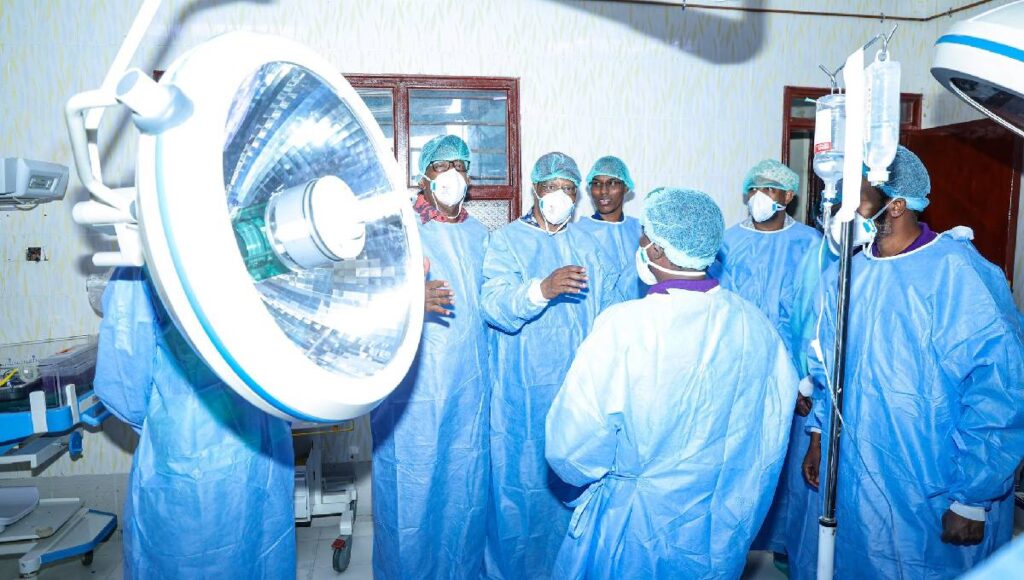Balambala Sub-County Hospital in Garissa County has made history by becoming the first rural hospital in Kenya to achieve full digitization. This milestone marks a significant step in the country’s healthcare transformation, setting the pace for modern, technology-driven health services in marginalized regions.
The hospital has been equipped with a Health Management Information System (HMIS), making it possible to digitize patient records, streamline service delivery, and enhance overall healthcare management. The system is designed to ensure data security, improve coordination of care, reduce medical errors, and eliminate unsafe medical practices. By embracing digital health tools, the facility is paving the way for a more efficient, accountable, and patient-centered health service.
To support the rollout, the hospital has received 40 digital devices and trained 35 healthcare workers in the use of the new systems. This investment is part of the government’s broader strategy to accelerate the realization of Universal Health Coverage (UHC) across all counties through technology. The initiative demonstrates how innovation can be used to bridge disparities in healthcare access, especially in underserved rural communities.
The launch of digitization coincided with a three-day free medical and surgical camp held at the newly refurbished Level 4 facility. During the camp, 1,994 patients accessed services including consultations, check-ups, and health education. In addition, 1,786 residents were registered under the Social Health Authority (SHA), advancing Kenya’s health financing reforms and ensuring more families can access affordable healthcare.
Leaders present during the event underscored the importance of digitization in rural hospitals, noting that no Kenyan should be denied quality healthcare due to their geographical location. The transformation of Balambala Sub-County Hospital not only addresses local health challenges but also positions the facility as a model of rural health innovation in Kenya.
With the integration of digital systems, Balambala is now better placed to improve service delivery, track health data in real time, and support long-term planning in the healthcare sector. This breakthrough reinforces the vision of a modern, equitable, and technology-enabled healthcare system that can meet the needs of all Kenyans.
Balambala’s digitization journey is expected to inspire other counties to follow suit, creating a network of smart hospitals across the country. By prioritizing innovation, training, and inclusivity, the hospital has set a precedent for the future of rural healthcare in Kenya.

